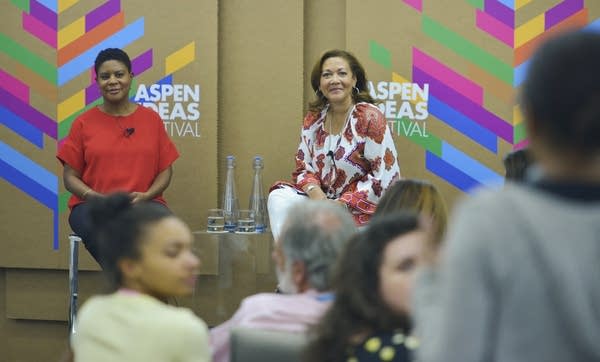Ancestry research: Can DNA help us grapple with the past?

Go Deeper.
Create an account or log in to save stories.
Like this?
Thanks for liking this story! We have added it to a list of your favorite stories.
An exploration of how genetic testing and ancestry research may allow us to learn our racial identity, our history and our humanity.
Michele Norris and sociologist Alondra Nelson offer some answers to the question, "can DNA help us grapple with our past?"
"When you spend time with people again and again ... you saw how the test results sort of evolved in their lives," Nelson said of her research on ancestry testing.
When people, specifically African-Americans, take DNA tests it's less about identity in a narcissistic sense and more about people trying to reconcile the history of slavery, Nelson said.
Turn Up Your Support
MPR News helps you turn down the noise and build shared understanding. Turn up your support for this public resource and keep trusted journalism accessible to all.
"When we talk about the history of slavery in this country it often feels or seems quite abstract," she said. "So, what genetic ancestry testing can allow is for it to be very personal. So it's not abstract in time or in space, it's about my particular family."
Former NPR host founder of the Race Card Project and a Minnesota native, Norris is director of a program at the Aspen Institute called "The Bridge," and she explored the topic of racial identity, ancestry and genealogy at this summer's Aspen Ideas Festival.
Nelson is dean of social science and professor of sociology at Columbia University. She's also the author of, "The Social Life of DNA: Race, Reparations and Reconciliation After the Genome."
Their discussion was recorded June 26, 2017 in Aspen, Colorado.
To listen to the program, click the audio player above.
Dear reader,
Political debates with family or friends can get heated. But what if there was a way to handle them better?
You can learn how to have civil political conversations with our new e-book!
Download our free e-book, Talking Sense: Have Hard Political Conversations, Better, and learn how to talk without the tension.




